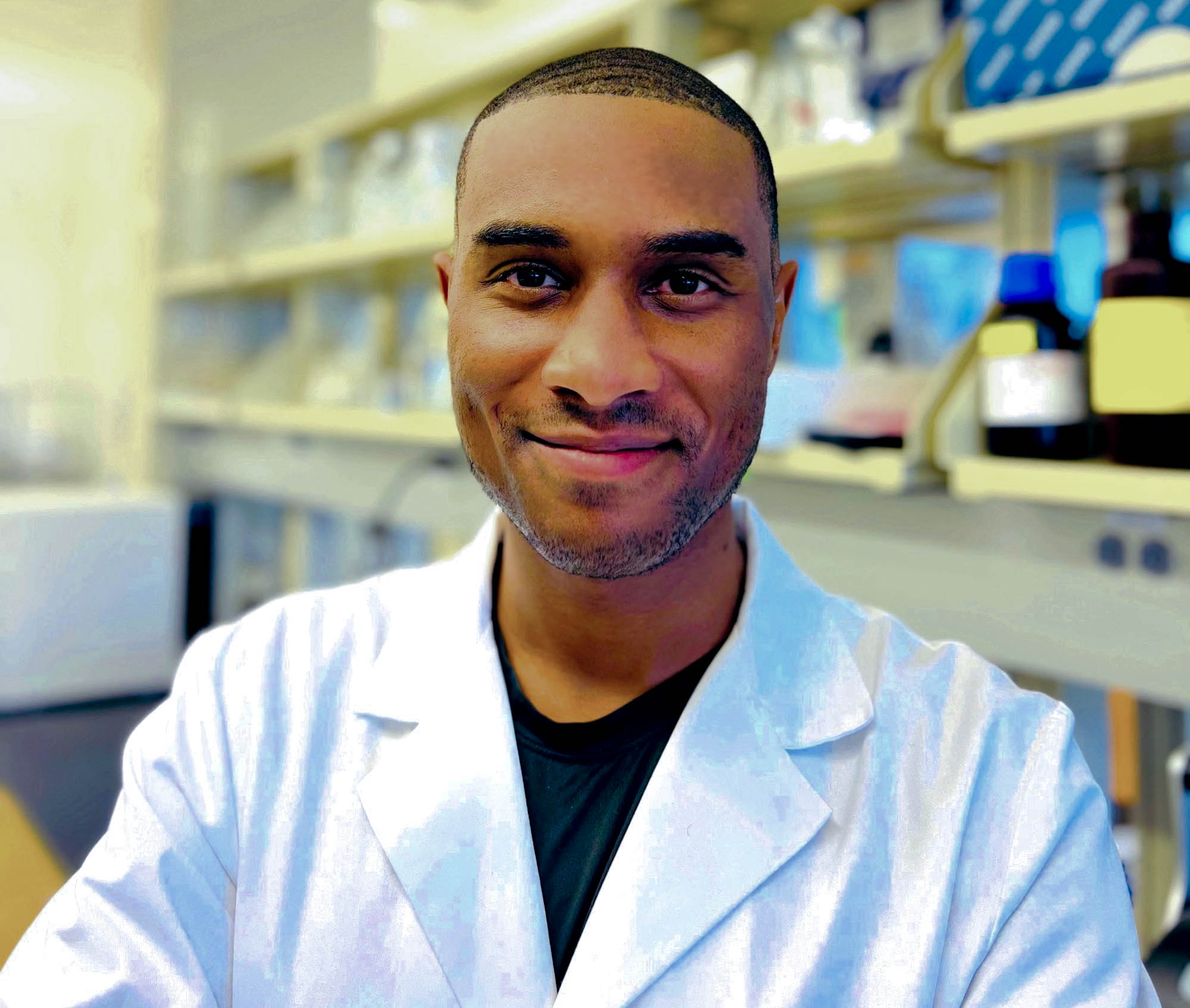Freeman Lewis is a Ph.D. candidate at the FIU Stempel College’s Department of Environmental Health Sciences. Under the guidance of Dr. Roberto Lucchini, professor of occupational and environmental health sciences, Freeman's research leverages multi-omic approaches and computational modeling to evaluate the neuro-physiological impact of environmental neurotoxicants and their association with Parkinsonism.
Last fall, Freeman received the Carl Storm Underrepresented Minority (CSURM) Fellowship. Through this award, he will present his latest research findings this February at the 2025 Metabolomics and Human Health Gordon Research Conference.

What motivated you to pursue your area of study?
My passion for environmental health sciences stems from a deeply personal experience. My grandmother, a believer in academia who worked at the first integrated school in Oakdale, Louisiana during the 1960s, inspired me with her dedication to creating opportunities for others. Later in life, she developed Parkinson’s after living in an area with heavy pesticide use for mosquito control. We now know that chronic pesticide exposure can alter key neurological pathways through oxidative stress and mitochondrial dysfunction, contributing to Parkinson’s.
Watching her experience sparked my interest in understanding how environmental toxicants like these interact with molecular systems to cause disease. This focus drives my research into identifying molecular biomarkers—such as metabolomic and lipidomic signatures—and pathways that link environmental exposures to health outcomes, aiming for prevention and targeted interventions.
What are your aspirations for post-graduation?
After my Ph.D., I aspire to lead research continuing the discovery of biomarkers, including metabolomic and lipidomic signatures, linked to early neurodegenerative processes from environmental toxicants. I envision translating these discoveries into actionable tools, such as diagnostics or exposure mitigation strategies, that protect vulnerable populations and the environment at large. By integrating advanced exposure assessments, bioinformatics, and multi-omics approaches, I aim to inform public health policies and reduce the burden of age-related diseases like Parkinsonism and Alzheimer’s. I also seek to address the root causes of these conditions by minimizing environmental toxicant exposures and promoting cleaner, healthier environments.
What does it mean for you to win this award?
Winning the CSURM Fellowship is a tremendous honor. It reflects the collective impact of our research within the broader scientific community. This award recognizes work that demonstrates innovation and relevance to the field, and being selected is a testament to the guidance and support I have received from my mentor, Dr. Roberto Lucchini, as well as our collaborators, including Dr. Xuexia Wang, Dr. Ting Wang, Dr. Elena Colicino, and Dr. Haiwei Gu. Their expertise and collaboration have been invaluable in shaping the significance of our findings. Our work in metabolomics and lipidomics, particularly in exploring how environmental exposures influence human health, demonstrates the transformative potential of advanced technologies to address complex public health challenges.
Beyond the recognition, this fellowship provides the critical support I need to attend the Gordon Research Conference on Metabolomics and Human Health. This event allows me to present our findings, connect with global leaders in the field, and gain valuable insights that will further advance our work.
Winning this award not only highlights the importance of diversity in science but also encourages other students at FIU to pursue similar opportunities, fostering confidence and increasing representation in spaces that shape the future of tomorrow.
The award gives you the opportunity to present your research. What do you hope this presentation accomplishes?
I hope my presentation helps further discussions within the field of environmental health sciences about the complexities of neurotoxic mixtures and how their cumulative effects can amplify harm beyond what individual toxicants cause. This perspective is critical for improving how we define thresholds of acceptable exposure within our lived environments, considering real-world scenarios where multiple environmental toxicants interact synergistically. By highlighting the potential of metabolomic and lipidomic biomarkers to assess exposure and disease progression, we aim to build trust among researchers to adopt advanced technologies that deepen understanding of these complex relationships and translate findings into actionable public health strategies.
This opportunity also reflects the mission of the Robert Stempel College of Public Health & Social Work at Florida International University, which is committed to addressing environmental health disparities and improving health outcomes for communities. Attending the Gordon Research Conference will allow me the chance to represent the cutting-edge research happening at FIU and build collaborations that can push the field forward.
What message do you have for fellow students who may feel inspired by you?
The path to meaningful scientific discovery often begins with curiosity sparked by personal experience. For those inspired by my journey, I encourage you to explore the intersection of your passions and societal needs. The key is persistence: the work I do on heavy metal mixture exposures and their link to Parkinsonism in aging populations began as a deeply personal question about my grandmother’s Parkinson’s. Today, it drives my mission to uncover biomarkers that could change how we diagnose and treat such diseases. And remember, the challenges you face as an underrepresented student or professional are not barriers—they are opportunities to bring unique perspectives and drive innovation in ways others cannot.
What’s unique about my journey is how I’ve sought to align my passion with the technologies that drive the next generation of advances in the field. By embracing cutting-edge approaches like metabolomics, lipidomics, and multi-omics integration, I’ve positioned myself to tackle questions that were previously unanswerable. The inclusion of advanced tools can open doors to discoveries that were once out of reach, and I’ve found that pairing your passion with the right skill set can lead to impactful and innovative breakthroughs.
